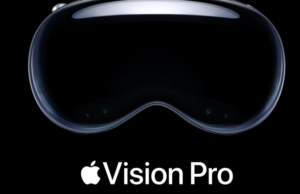Buying a car is a significant investment, and finding the best time to make this purchase can help you save money and get the best deal. Whether you’re purchasing a brand-new vehicle or a used one, it’s essential to understand the factors that can impact the price and know when to look for the best deals. In this article, we’ll explore the best times to buy a car, so you can make an informed decision.
End of the Year:
One of the best times to buy a car is at the end of the year, specifically during the holiday season. Dealerships often offer significant discounts and incentives to clear out their inventory before the end of the year, making it an excellent time to buy. Additionally, many manufacturers also offer year-end bonuses and incentives, making it a great time to purchase a new vehicle.
End of the Month:
Another great time to buy a car is at the end of the month, as dealerships often have sales targets to meet. To reach these targets, they may offer discounts and incentives to close deals. This is a great time to negotiate and get the best deal possible.
New Model Year:
When a new model year rolls out, dealerships will often offer discounts on the previous year’s models to make room for the new vehicles. This is an excellent time to purchase a used car, as it will have been gently driven and well-maintained by its previous owner.
Holiday Sales:
Several holidays throughout the year, such as Labor Day, Memorial Day, and President’s Day, offer significant discounts and incentives on both new and used vehicles. It’s essential to do your research beforehand and be prepared to negotiate to get the best deal.
Recession:
During economic downturns, many people hold off on buying new cars, leading to a slowdown in sales. To combat this, dealerships may offer discounts and incentives to attract customers. While a recession may not be an ideal time to make a big purchase, it can be an excellent opportunity to get a great deal on a car.
Know Your Credit Score:
Before you make a car purchase, it’s essential to know your credit score. A good credit score can help you secure better financing rates, which can save you a significant amount of money in the long run. It’s essential to check your credit score before you make a purchase and work to improve it if necessary.
Research the Market:
Before you make a car purchase, it’s crucial to research the market to see what’s available and at what price. Look at the features and options that you want and need in a vehicle, and compare the prices of similar models from different dealerships. It’s also essential to research the reputation of the dealership and the manufacturer to ensure you’re getting a quality product.
Negotiate the Price:
Once you’ve found the car you want to purchase, it’s time to negotiate the price. Remember that the sticker price is not set in stone and can be negotiated. Don’t be afraid to ask for a better price, as the dealership will often be willing to work with you to make a sale.
Consider the Total Cost of Ownership:
When you’re making a car purchase, it’s essential to consider the total cost of ownership. This includes not only the purchase price of the vehicle but also the cost of maintenance, insurance, and fuel. It’s crucial to factor in these costs when you’re negotiating the price and making your decision.
Additionally, it’s important to consider the timing of your personal finances. If you’re planning to purchase a car, make sure you have a stable income and enough savings to cover the down payment and any other expenses. It’s also a good idea to shop around for the best financing options and to compare interest rates from different lenders. You can also use online tools such as car loan calculators to determine the monthly payments and the total cost of the loan over its term.
Finally, be sure to have a clear understanding of the warranty and maintenance agreements before you make a purchase. Some vehicles come with extended warranties, while others may have a limited warranty. It’s also important to understand the maintenance schedule and costs to ensure that you’re getting a reliable vehicle that will last you for many years.
In conclusion, the best time to buy a car is a combination of timing and preparation. By considering the factors outlined above, you can make an informed decision and get the best deal on a vehicle that meets your needs and budget. Take the time to research, compare prices, and negotiate, and you’ll be on your way to making a successful car purchase.
The cheapest month to buy a car can vary depending on various factors, such as the dealership, the make and model of the vehicle, and the current market conditions. However, some of the best times to buy a car are often at the end of the year, when dealerships are looking to clear out their inventory, and at the end of the month, when sales targets are being met. Additionally, the introduction of a new model year can also be a good time to purchase a vehicle, as dealerships may offer discounts on the previous year’s models to make room for the new vehicles. It’s also a good idea to keep an eye out for holiday sales, such as Memorial Day or President’s Day, which may offer additional discounts and incentives. Ultimately, the best way to find the cheapest time to buy a car is to do your research and keep an eye on market conditions.
The timing of purchasing a new car depends on your personal needs and circumstances. Here are some factors to consider when deciding when to get a new car:
- Current vehicle condition: If your current vehicle is unreliable or costly to maintain, it might be time to consider a new car.
- Driving needs: If you’ve recently changed jobs or have a growing family, you may need a more spacious or fuel-efficient vehicle.
- Budget: Make sure you have the financial means to afford a new car, including the down payment and monthly payments.
- Car financing options: Interest rates and financing terms may change, so it’s a good idea to shop around for the best deal.
- Manufacturer incentives: Automakers may offer incentives, such as discounts or special financing options, that make it more affordable to purchase a new car.
- Personal timing: Consider if there are any life events, such as a move or a new baby, that may make it a good time to get a new car.
Ultimately, the best time to get a new car is when you have a clear understanding of your driving needs and personal finances and have researched and compared the available options.
The ideal mileage for a used car depends on several factors, such as the age of the car, the make and model, and the driving habits of the previous owner. On average, a well-maintained car should have around 12,000 to 15,000 miles per year. However, some cars can last longer and still have low mileage even with higher annual usage.









